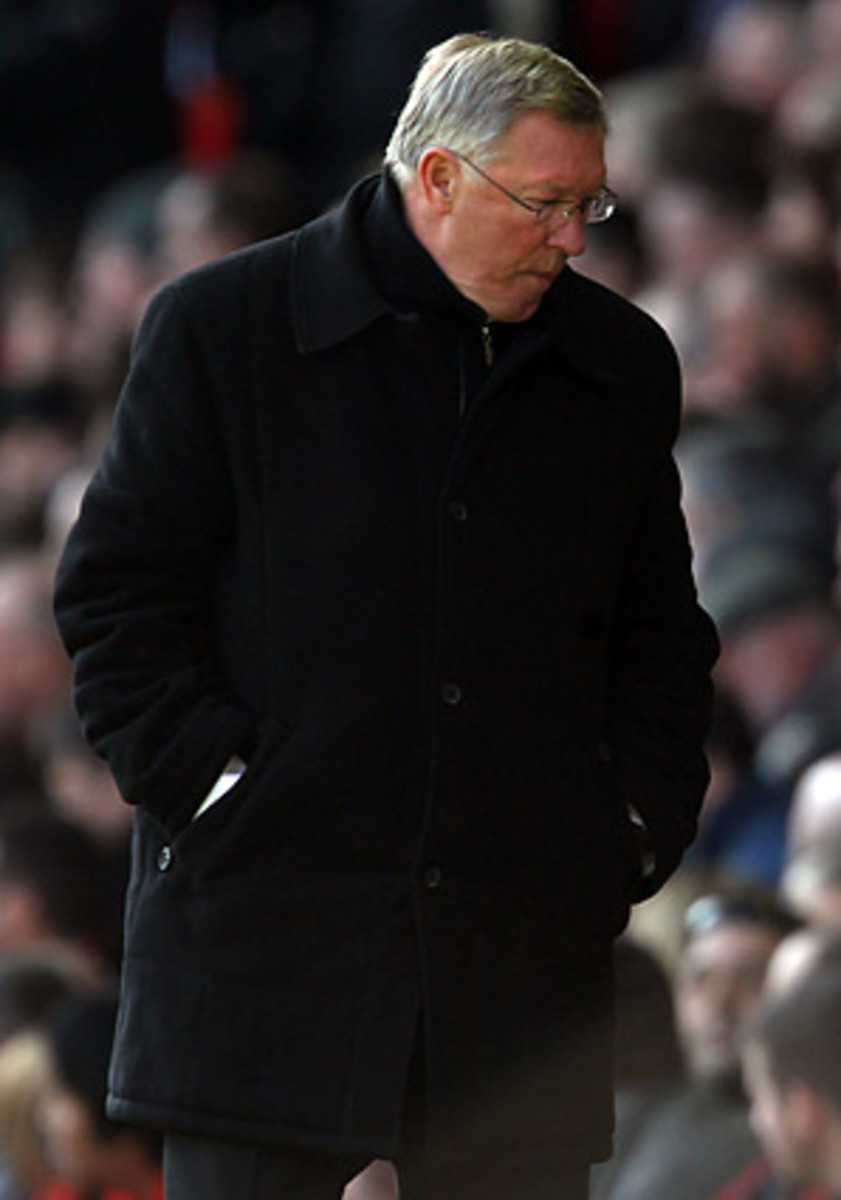Intransigence toward media nothing new for United's Ferguson
A new low point was reached, however, with United's match at Liverpool last Sunday. Before the game, Ferguson canceled the customary news conference and included MUTV in his blanket ban. This time, he didn't blame the £6-a-month ($9.70) subscription channel for something someone else had said but ironically enough for giving himself too much airtime. During a live interview with MUTV after the loss at Chelsea last week, the 69-year-old coach questioned the fairness of referee Martin Atkinson. The accusation brought a charge of improper conduct by the FA. But instead of showing contrition, Ferguson appealed the charge and implicitly blamed the TV station for not spotting the incendiary nature of his statements before the broadcast, an omission that cost it a post-Liverpool interview, along with all other outlets.
The Times' chief sports correspondent, Matt Dickinson, feared that this wouldn't be the last time: "Ferguson's treatment of the media -- OK, bullying -- is something he is free to continue right until the day he retires, whatever contempt it may show for the broadcasters who pay their millions of pounds or the fans who pay to watch." Neither (empty) threats of Premier League fines nor stipulations in the contracts with broadcasters have forced Ferguson's hand, as no one's prepared to stand up to him.
Journalists can be expected to complain about the Scot's confrontational tactics -- plenty of newspaper journalists have been on the receiving end of his infamous "hair-dryer" treatment -- but does his silence actually matter that much in a wider context? From a financial point of view, it obviously doesn't. Liverpool-Man Utd was a big enough game to attract worldwide attention, with or without Sir Alex's pre-match thoughts. The broadcasters don't seem to care much that their product is being sabotaged from within -- in their estimate, it's still good enough regardless. Both the Premier League and Man Utd frankly work so well as commercial propositions that they can exist without cooperation from the most influential figure, and he in turn is secure enough in his position not to worry about any repercussions. In other words, it's a simple equation: Fergie has realized that he doesn't need the media, and the feeling is mutual. At least in the sense that soccer sells just as well without him.
United might feel differently if scores of MUTV subscribers were to desert the channel in the wake of more no-shows, but such a scenario seems remote. If reactions in Internet forums and on social media platforms are anything to go by, there's actually a lot of sympathy for Sir Alex's stance among United supporters. Many seem to believe, as their manager does, that the English media are biased against their club and should thus be treated as a hostile enemy, not as a partner. As long as the team keeps winning and making money, then Ferguson's intransigence is here to stay. That's, quite literally, the bottom line, and no amount of newspaper indignation or half-hearted appeals to the Premier League by TV execs will change that.
But there is another way to look at it; one that goes beyond contractual obligations and turnover figures. In Spain, Germany and Italy, the symbiotic relationship between television and soccer is very similar: The game doesn't need managerial statements to add to the hype. Yet Ferguson's behavior would not be tolerated.
It's true that Real Madrid's José Mourinho has skipped the odd post-match interview and instructed his players not to talk after defeat to Barcelona in the Clásico. The entire Schalke 04 squad went a couple of months without talking to the press not long ago, and so-called "silencio stampa" (media blackout by the players) spells are common in Serie A in times of crisis. A systematic disengagement on the Ferguson scale is unthinkable, however. The fans would never stand for it.
Whether the legal status of their club makes the fans actual stakeholders or just imagined ones is immaterial in this respect; continental soccer culture demands a minimum level of accountability. All soccer clubs, including those that subscribe to the "socio"-model of ownerships by the members and democratic elections, are run like companies these days. But European clubs cannot afford to treat their fans as mere customers. Presidents, sporting directors and managers understand that being subjected to the scrutiny of the supporters via the media is an integral, non-negotiable part of the job and they are judged accordingly. They can't cherry-pick media outlets or the timing of their cooperation, as Ferguson did with his PR offensive in the wake of the "Rooney to Manchester City" crisis. Contrary to the situation in England, where Ferguson's no-shows are a testament to his power, avoiding the media is seen as the last resort of those who are weak and cannot face the music.
Man Utd fans should realize that they are being sold short. Since the powers that be are clearly not interested in changing the status quo, things will only improve if they wake up to fact that loyalty is not one-way street. Support should never border on the servility. United's performances at Stamford Bridge and Anfield raised legitimate questions that needed answers. The fans have a right to hear and evaluate the views of the people responsible for the fortunes of their club, especially in the wake of painful defeats. Ferguson's pettiness, they must realize, doesn't so much hurt the media as their own interests.





